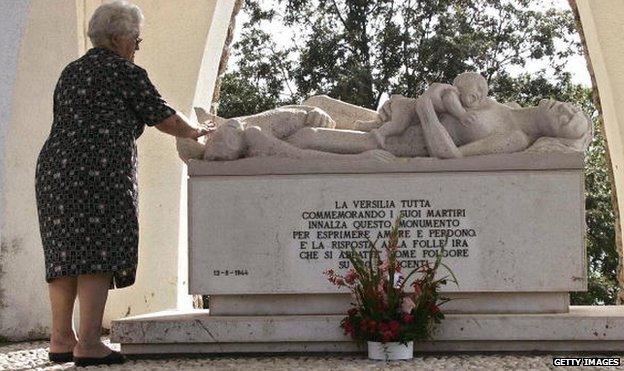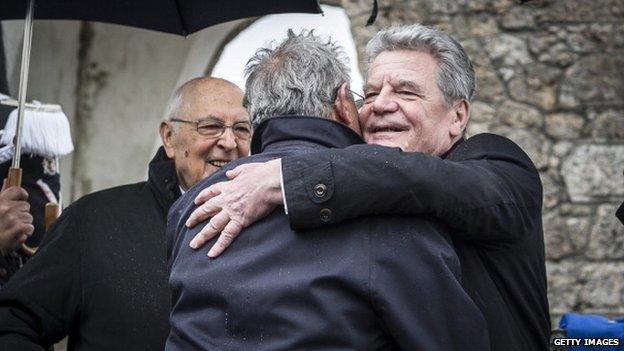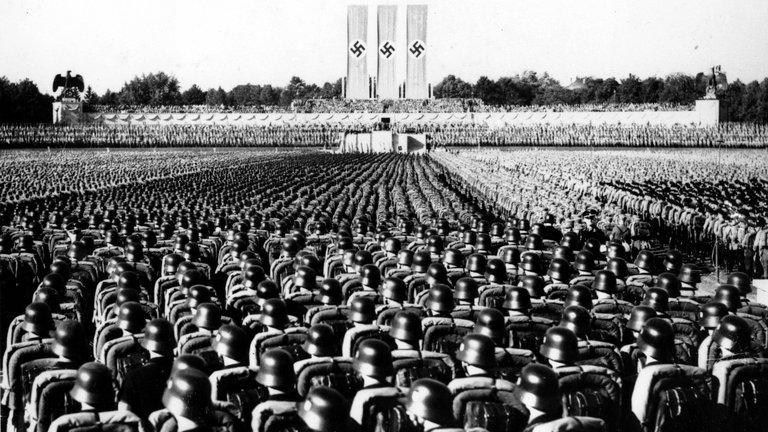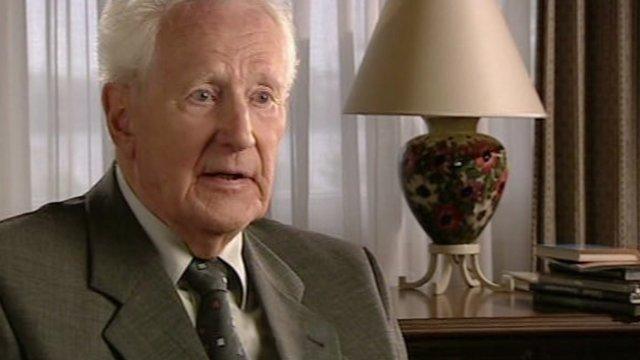Most-wanted German Nazi Sommer 'unfit for trial'
- Published

Ten ex-Nazi officers were found guilty of the 1944 Sant'Anna massacre of 560 civilians
Former SS lieutenant Gerhard Sommer, at the top of a most-wanted list of Nazis, has been declared unfit for trial by prosecutors in Germany.
They said he had severe dementia.
Sommer, 93, was one of 10 ex-Nazi officers found guilty in absentia in Italy of one of the country's worst civilian wartime massacres.
He was convicted for his role in the murders of 560 civilians in the Tuscan village of Sant'Anna di Stazzema in August 1944.
The Nazis, who were retreating in northern Italy ahead of Allied troops, surrounded the village early on 12 August and in the space of a few hours murdered men, women and 119 children.
Sommer was serving at the time in an SS Panzer division. He now lives in a nursing home in Hamburg-Volksdorf and tops the Simon Wiesenthal Center's list , externalof most-wanted Nazi criminals.

German President Joachim Gauck (R) visited Sant'Anna di Stazzema in 2013
Hamburg lawyer Gabriele Heinecke, who has campaigned on behalf of the victims' families to put him on trial, said she was unhappy with the way specialists had reached the conclusion that Sommer was suffering from dementia.
When asked by Berlin website Tageszeitung, external if she thought dementia could be faked, Ms Heinecke said: "Of course. In matters of pensions it's something that happens every day."
The decision to drop the trial comes as Oskar Groening, another 93-year-old former Nazi, described as "The Bookkeeper of Auschwitz" is being tried in Germany on at least 300,000 counts of accessory to murder.
For years, attempts have been made to put Sommer on trial in Germany, and prosecutors in Hamburg said if he had been deemed fit he would "with high probability have been charged with 342 cases of murder, committed cruelly and on base motives".
In 2012, the case was dropped for lack of evidence after a 10-year investigation, but it was eventually re-opened in August last year.
- Published1 October 2012

- Published15 July 2015
